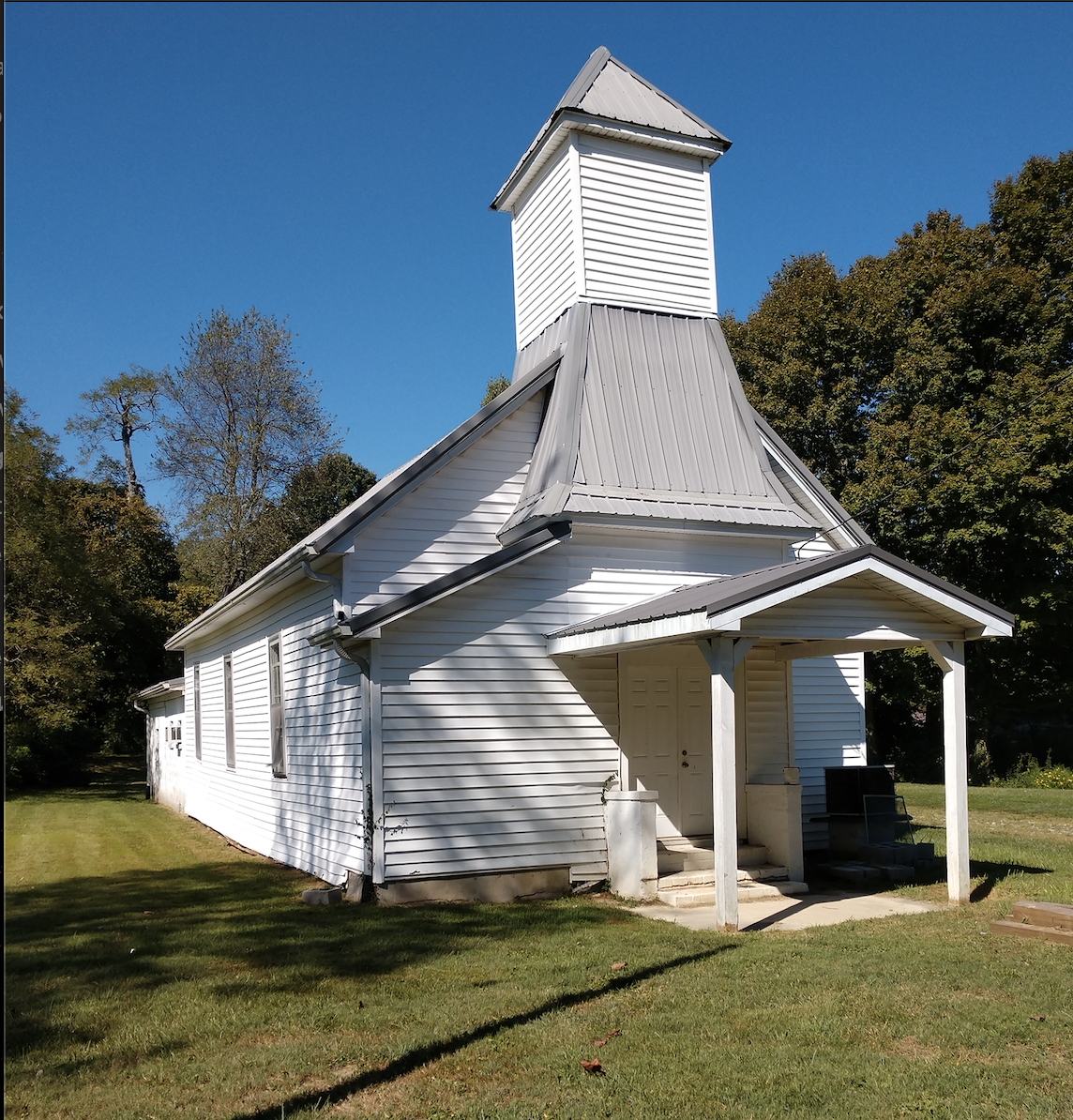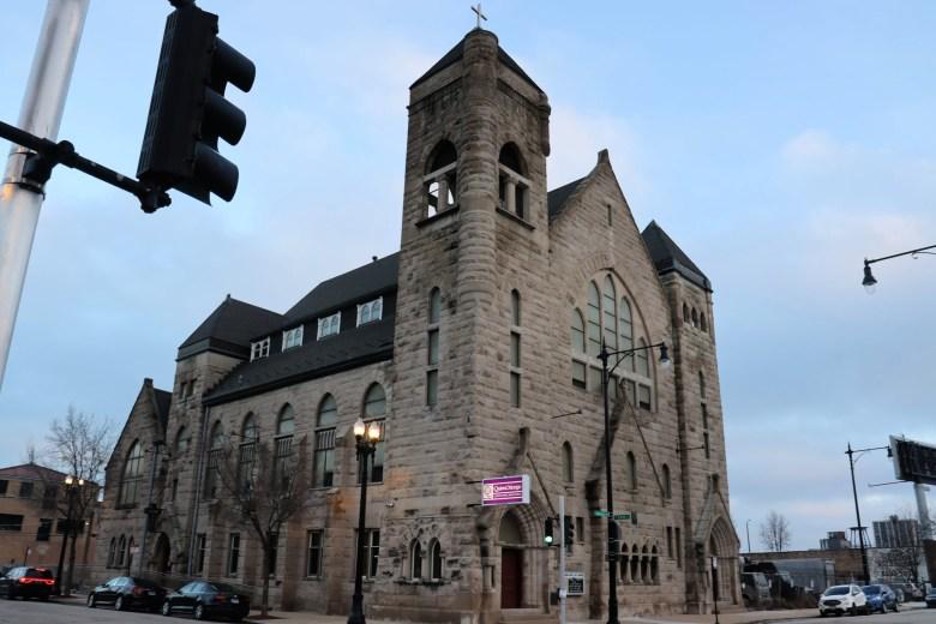Historic Past Did Not Prevent Church’s Demise
By Robert B. McCormack, 13th Episcopal District
The historic Allen Chapel AME Church, after 126 years of faithful worship, met its ignoble end. The epicenter of Moreland, Kentucky’s Black community was established around 1892 but was devastated by a rare flood in 2018. The Kentucky Annual Conference was forced to dissolve the congregation for the facility was beyond economic repair.
Torrential rains fell, the creeks swelled beyond capacity, and the church parking lot became a lake as water crept into the tiny sanctuary on June 26, 2018. The previous measures to combat this from happening were inefficient and culverts were overwhelmed. Widened creek beds and downspouts could not keep pace with the deluge. An embankment acted as a dam. Water found every crevice. Four feet of water exacted its toll on the sanctuary, vestibule, dining room, and the two recently-installed interior restrooms.
The 100-year old floor joists, finished floor, and 14 eight-foot long cushioned pews purchased by the previous generation of church members were severely damaged. Water, mud, and sediment saturated the red carpet. Irreplaceable records dating back to the 1950s were damaged. Members were able to salvage a few articles of worship but it was a traumatic event in the life of the church for the 23 lifelong members. There was loss, sadness, and grief. We prayed but wept vociferously for our beloved place of worship. We dug deep and solicited donations from sister congregations.
Storm waters receded and the cleanup began. A local contractor was hired and paid $11,000 to remove the floor and plaster from the lower interior walls during the first phase of renovation. However, a closer inspection revealed substantial hidden structural damages which proved too extensive to proceed. Restoration costs were estimated at $40,000. The church’s insurance policy included flood coverage but the structural claim and personal property claim payout was a proverbial drop in a very large bucket. The building was a total loss.
Gladys Faulkner, a Moreland native and the church’s former secretary, lamented the situation. “Allen Chapel has been our only church home for our parents [and] grandparents. We anticipated closure due to dwindling membership but we did not anticipate a catastrophic flood.” She has special sentiments for Allen Chapel, having served a stewardess like her mother and mother-in-law. Her son, Brent, has served as the pianist for over two decades.
Gladys and Michael, who wore many hats for the church as the former president of the building fund, the Fifth Sunday Fellowship, Church School teacher, and choir member, exchanged wedding vows in the church. Michael said reflectively, “I miss the wonderful lessons and discussions… I just miss church, the way we worshiped, and the songs.”
The flood occurred just seven weeks before the highly-anticipated annual Basket Meeting, held the second Sunday in August, which is a homecoming for distant friends to renew friendships, gather for morning worship, a meal with mouth-watering food, and afternoon preaching. Once upon a time, the men hand-dipped ice cream cones underneath the canvas tent.
The silent sentinel church building stands idle as a gateway to the past. The atmosphere of vibrant and meaningful worship has disappeared. Many children grew up in the church and learned faithfulness and patience, acquired knowledge and wisdom, and discovered love. Often, it was tough love. In retrospect, we remember roots and reflect on people’s characters who served as role models. The flood taught us that disasters, natural or man-made, can and will happen despite our best preparations. We will keep the faith and are thankful for the experience.
“We would like to thank the local sister congregations, former members, and friends for their kind and generous donations and fervent prayers. Sadly, Allen Chapel, Jacob Chapel (Turnersville), and St. James (Stanford) as defunct worship institutions. Bethel AME Church (Boneyville) is the sole surviving AME congregation in Kentucky’s Lincoln County,” Gladys shared.
The effects of water damage continue to assault the historic structure. Mold has grown. The exposed floor joists deteriorate and weaken. Further soil erosion will exacerbate the structural problems. The Kentucky Annual Conference will take final action for the disposal of the property. Each member said one final “goodbye” and “thank you” to Allen Chapel, an old friend. You are and forever will be loved and missed!





